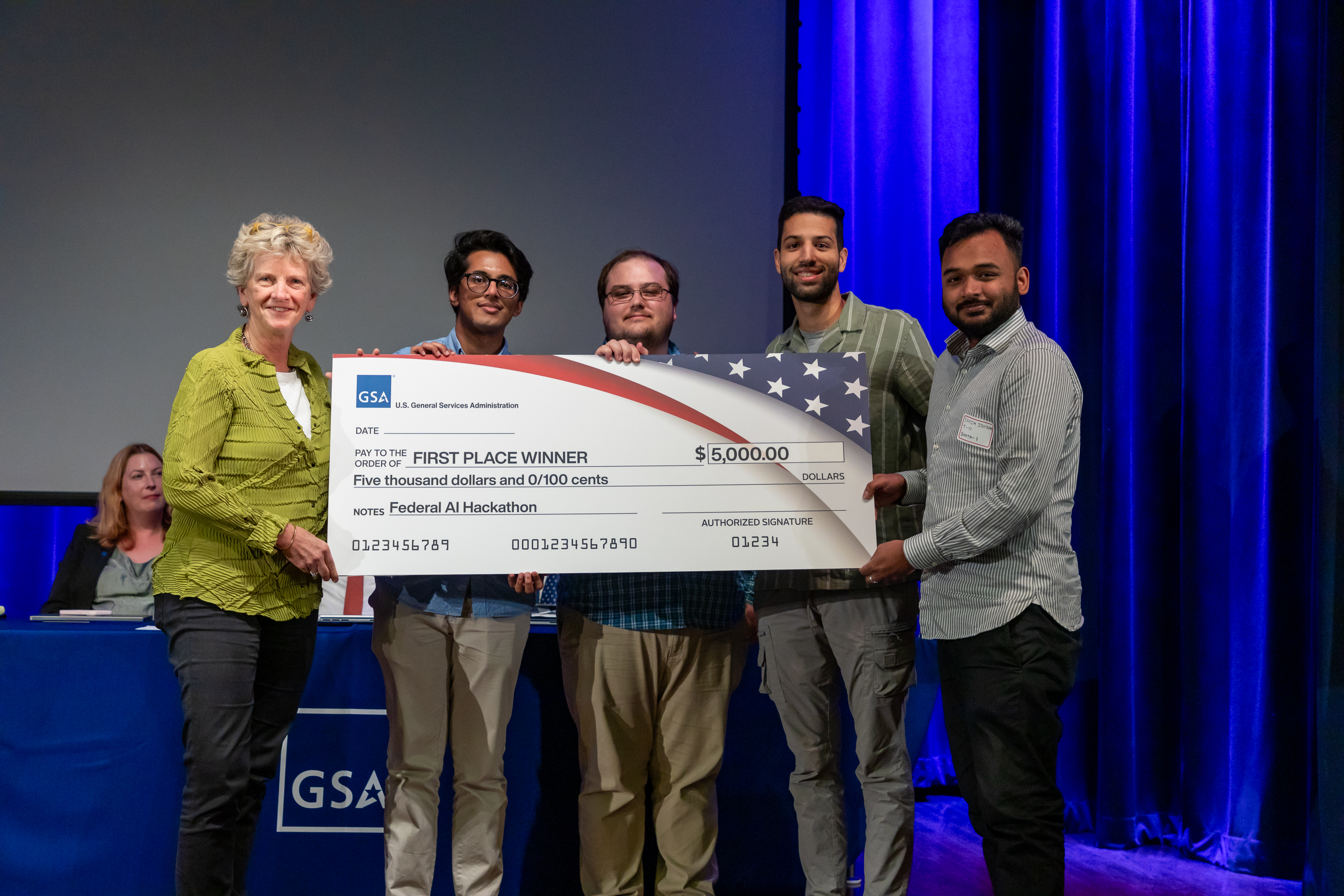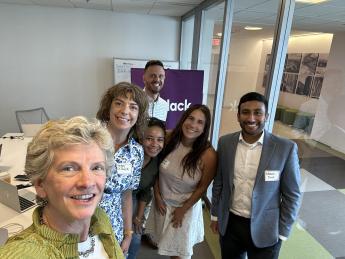
GSA AI-themed hackathon reimagines user experience for federal websites
Post filed in: Technology
On Wednesday, July 31, GSA and co-sponsors from industries and federal agencies hosted the Federal AI Hackathon, an event focused on using AI to make government websites and digital services more efficient, user-friendly and responsive to users’ needs.
More than 250 people from across the country signed up for the event at three locations: Washington, Atlanta and New York City. This hackathon used AI and cloud tools to help optimize government services for the American people, in the same way earlier technologies helped the government evolve.
Participants wrote code, proposed development standards and created features to increase the reliability of AI-provided responses and ensure an accessible, intuitive user experience.
“Learning how to effectively and efficiently use new technology allows GSA to make government work better, faster, and cheaper, and deliver technology that changes how people learn, do business, and live their lives,” said GSA Administrator Robin Carnahan, who in her opening remarks also discussed the need to use new technology to move our country forward. “This isn’t just about technology, it’s about public trust in our government… it’s about our democracy’s ability to deliver.”

Administrator Carnahan further emphasized the relationship between the event and GSA’s efforts. Both are consistent with the Executive Order on Safe, Secure, and Trustworthy Artificial Intelligence, which supports the responsible and effective government use of AI to deliver better results for the American people while at the same time mitigating its risks. “The innovation ecosystem must be built on the foundation of those values — and we’ll start to naturally see the applications for AI government - whether it’s addressing the climate crisis… or supporting agencies that deliver benefits for veterans, farmers, students, and families,” she said.
GSA’s Chief AI Officer Zach Whitman echoed similar sentiments in his remarks. “This hackathon is more than just a competition. It’s an opportunity to shape the future of digital government services,” he said. “The proliferation of AI presents an opportunity to improve access to federal information and services. However, it also means we must ensure that the data disseminated through government websites and services are accessible to the AI systems that rely on them.”
Participants at the event said they were excited to innovate and share ideas that could impact millions of Americans who rely on government services. One of the participants was Ana Zelayn, a user experience (UX) designer. “The focus on innovation appealed to me. I’m excited for collaboration and teamwork today,” Zelayn said.
Julian Nolasco, a graduate student at Virginia Tech, expressed a future-forward interest in the hackathon. “What drew me to the hackathon is that I am entering into a space I’m unfamiliar with, but I know will be a huge part of our future. I wanted to get a taste of what AI could transform into,” Nolasco said.
Individuals and teams created solutions for five federal websites, ranging from original AI-powered chat interfaces, revamped user experiences, and new content design. The submissions were judged by executives and technical experts from across the federal government. Four teams won a share of the $10,000 cash prize:
- First place: Aviral Sharma, Ashwin Thiruvillakkat, Fahim Ishrak, Tyler Harris (Washington, DC) - for designing an original interface and AI-powered search engine for National Science Foundation’s Awards Search website.
- Second place and People’s Choice: Martin Blue, Caesar Cuzco, Nicholas Gutierrez (New York City) – for designing and building an AI-powered assistant returned easy-to-understand article summaries from USDA’s content hub.
- Third place: Chris Shaheen (Washington, DC) - for building an AI-powered chat interface so users could ask questions and get information from the Census Bureau’s data platform.
“This was our first hackathon since 2019 and it gave us the opportunity to explore AI as the next in a series of enabling, transformative and disruptive technologies with potential value and benefits to the people we serve,” said GSA CIO David Shive. “Hackathons spur intellectual, academic and strategic thinking in new and evolving technology spaces. They’re a great way to bring people into a conversation where citizens are helping government help citizens – and that’s representative government at its finest.”

 U.S. General Services Administration
U.S. General Services Administration
